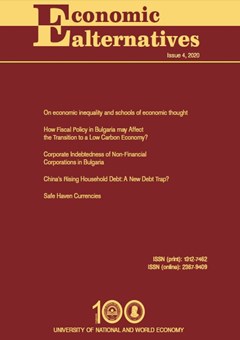On economic inequality and schools of economic thought
Author: Alfredo Felix Blanco
Abstract
The question of inequality is not new in the history of economic thought; from the very birth of political economy as an independent discipline, the issues of the distribution of wealth, poverty and economic inequality were present. Obviously, the subject exceeds the disciplinary field of the economists because, as Piketty has pointed out at the beginning of his book: “... the distribution of wealth is too important an issue to be left to economists, sociologists, historians, and philosophers. It is of interest to everyone, and that is a good thing”. However, among economists the issue has become more important in recent years because of the deepening of the level of inequality that has accompanied the process of growth and globalization of the world economy. Transformations that accompanied the emergence of capitalism since the nineteenth century raised the first questions, and its evolution throughout the twentieth century and in the current century have faced different responses from different economic schools. Some very relevant questions which political economy can help answer are: Does capitalism inevitably lead to greater inequality? Or does the market mechanism itself tend to reduce inequalities? Does greater inequality contribute to economic growth? Or does inequality just cause cyclical crises? This last two questions are very relevant for less developed (emerging?) countries. The history of economic thought shows us that economists have given different answers, at different times of the evolution of economic ideas. In this paper the vision that the main thinkers of political economy have had on this issue is reviewed. Among the latter are the classical school, the extreme optimism of Adam Smith and Jean B. Say, the doubts on the future of David Ricardo, the negative predictions of Malthus and the eclecticism of Mill. Marx and his ideas about the fall of capitalism. Neoclassical blind confidence in the markets and Keynes and the capitalist crises. Lastly, a final consideration is made about the reality of inequality in the 21st century, neoliberalism and the commitment of economists as intellectuals.


